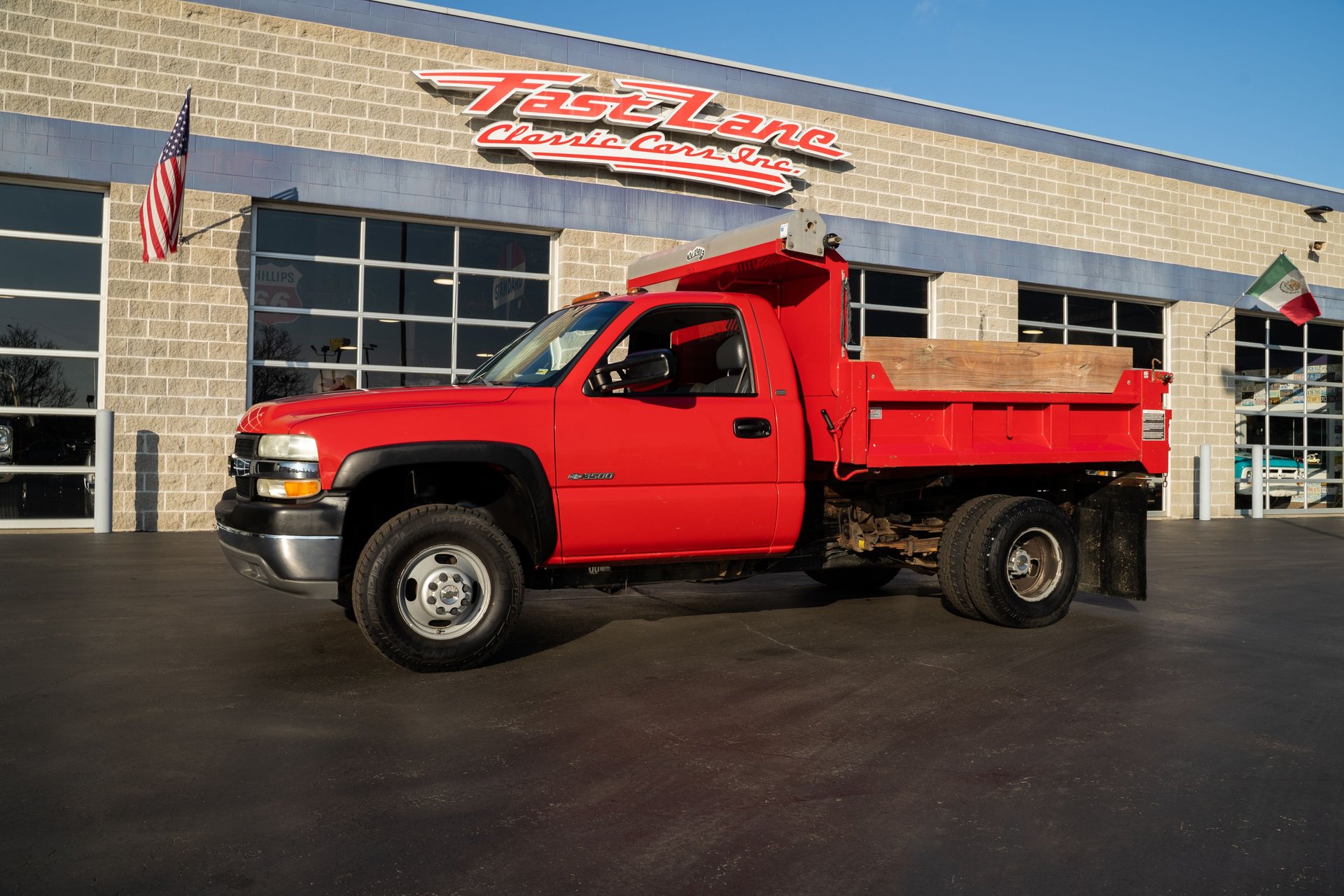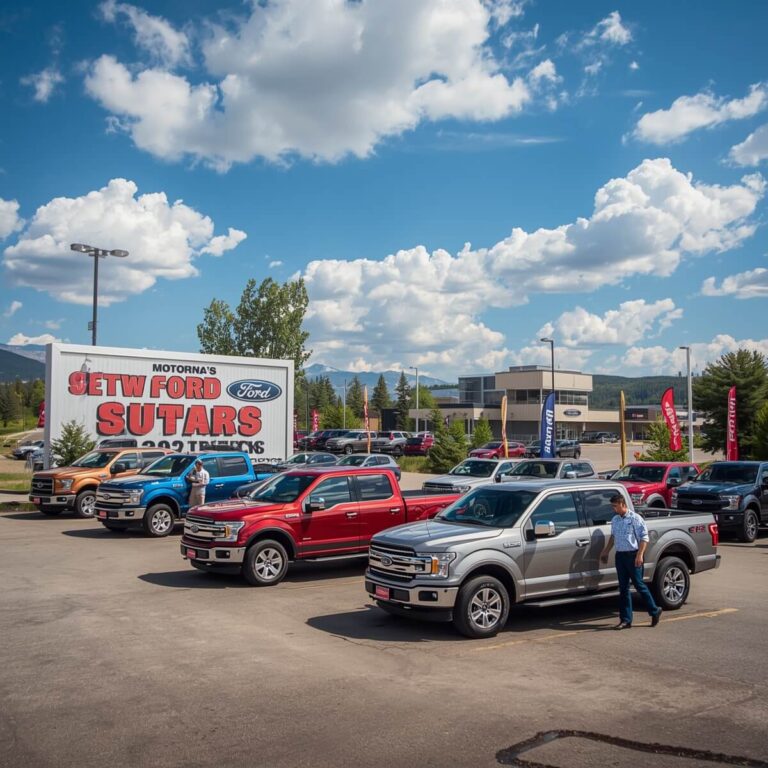The Texas Titan Hunter: Navigating the Market for Used 1-Ton Trucks
The Texas Titan Hunter: Navigating the Market for Used 1-Ton Trucks
In the vast expanse of Texas, where the land is big, the jobs are bigger, and the recreational pursuits demand serious muscle, the 1-ton pickup truck isn’t just a vehicle – it’s an indispensable partner. From hauling livestock across sprawling ranches to towing heavy equipment on oil fields, moving materials on construction sites, or simply pulling a massive fifth-wheel RV for a weekend getaway, the need for a robust, high-capacity truck is deeply ingrained in the Lone Star State’s DNA.
While the allure of a brand-new, gleaming heavy-duty truck is undeniable, the savvy Texan often looks to the vibrant used market for their next workhorse. Buying a used 1-ton truck in Texas offers a compelling blend of value, immediate availability, and proven capability. This comprehensive guide will delve into the world of used 1-ton trucks, exploring why they’re such a smart buy in Texas, what to look for, where to find them, and how to navigate the purchase process to ensure you drive away with the perfect titan for your needs.
Why a 1-Ton? Understanding the Heavy-Duty Difference
Before diving into the used market, it’s crucial to understand what distinguishes a 1-ton truck and why it might be the right choice for you. Also known as Class 3 trucks, these include models like the Ford F-350, Ram 3500, and Chevrolet Silverado/GMC Sierra 3500HD.
Their defining characteristic is their immense Gross Vehicle Weight Rating (GVWR) and Gross Combined Weight Rating (GCWR), which dictate their payload and towing capacities. Compared to their ½-ton or ¾-ton siblings, 1-tons boast:
- Superior Payload Capacity: Designed to carry heavier loads in the bed, often exceeding 4,000 pounds and sometimes even approaching 7,000 pounds for specific configurations (like dually models). This is crucial for hauling feed, tools, building materials, or slide-in campers.
- Unrivaled Towing Prowess: This is where 1-tons truly shine. With capabilities often exceeding 20,000 pounds (and some diesel models pushing over 30,000 pounds), they are built to handle large gooseneck trailers, fifth-wheel RVs, multi-car haulers, or heavy equipment transporters with relative ease.
- Heavy-Duty Components: Everything from the frame, axles, suspension, and brakes to the transmission and cooling systems is engineered for sustained heavy-duty use. This translates to greater durability and longevity under strenuous conditions.
- Diesel Powerhouses: While gas engines are available, a significant portion of 1-ton trucks are equipped with powerful turbodiesel engines (like Ford’s Power Stroke, Ram’s Cummins, and GM’s Duramax). These engines offer superior torque for towing, better fuel economy under load, and impressive longevity, often running for hundreds of thousands of miles with proper maintenance.
In Texas, these capabilities are not just luxuries; they are necessities. The diverse economy, from agriculture and energy to construction and a booming recreational vehicle industry, creates a constant demand for vehicles that can handle the toughest tasks.
The Appeal of "Used": Smart Buying in a Big State
Opting for a used 1-ton truck in Texas makes a lot of sense for several compelling reasons:
- Significant Cost Savings: New trucks, especially heavy-duty models with desirable trim levels and options, can easily crest the $70,000-$90,000 mark, sometimes even higher. Used trucks, having absorbed the steepest depreciation curve in their first few years, offer a substantial discount. This allows buyers to acquire a more capable truck, often with higher trim levels or desired features, for a fraction of the new price.
- Availability and Variety: Texas is one of the largest truck markets in the nation. This means a vast inventory of used 1-ton trucks is constantly flowing through dealerships, private sales, and auctions. You’ll find a wider variety of makes, models, configurations (single rear wheel vs. dually, different bed lengths, cab styles), and engine options than in smaller markets.
- Proven Reliability (with due diligence): Many 1-ton trucks are bought for work and well-maintained. A used truck with a documented service history can be a testament to its durability. While it requires careful inspection, a well-cared-for used truck can provide many more years and miles of dependable service.
- No New Car Blues: The initial wear and tear, the first scratch, the first ding – these are already out of the way with a used vehicle. For a work truck, this can be a relief, as it’s meant to be used, not babied.
Navigating the Search: What to Look For in a Used 1-Ton
Finding the right used 1-ton truck requires patience, research, and a critical eye. Here are the key factors to consider:
-
Define Your Needs and Budget:
- Purpose: What will you primarily use the truck for? Heavy towing (gooseneck/fifth wheel)? High payload? Daily driving? Recreational use? This will dictate whether you need a dually (dual rear wheels for maximum stability and payload), a single rear wheel (SRW) for easier maneuverability, or a specific cab/bed configuration.
- Engine: Diesel or Gas? Diesel engines offer superior torque, fuel efficiency under load, and longevity, but come with higher maintenance costs (e.g., fuel filters, DEF systems in newer models) and a higher initial purchase price. Gas engines are simpler, cheaper to maintain, and often sufficient for lighter towing or payload needs.
- Budget: Be realistic about what you can afford, not just the purchase price but also insurance, registration, and potential maintenance.
-
Thorough Inspection is Paramount: This cannot be stressed enough.
- Exterior & Body: Look for signs of accidents (uneven panel gaps, mismatched paint), rust (especially in wheel wells, rocker panels, frame rails, and bed mounts), and general wear and tear. Check the tires for even wear (indicating proper alignment) and remaining tread depth.
- Interior: Check for excessive wear on seats, steering wheel, and pedals. Ensure all electronics (windows, locks, AC, radio, infotainment) are functional. Look for warning lights on the dashboard.
- Under the Hood: Inspect for fluid leaks (oil, coolant, transmission fluid, diesel fuel). Check fluid levels and condition. Look for signs of neglect, such as dirty air filters or corroded battery terminals. On diesel trucks, listen for unusual noises from the engine and turbo, and check for excessive exhaust smoke.
- Underneath the Truck: Inspect the frame for cracks, bends, or severe rust. Check the suspension components (shocks, springs, leaf springs) for damage or leaks. Look at the exhaust system for leaks or modifications. Pay close attention to the driveshaft and U-joints.
- Test Drive: Drive the truck at various speeds, including highway speeds. Listen for unusual noises (clunks, squeals, grinding). Check the brakes for pulsation or pulling. Ensure the transmission shifts smoothly without hesitation or harshness. Test 4×4 if applicable. Pay attention to steering feel and alignment.
-
Vehicle History Report (VHR): Invest in a CarFax or AutoCheck report. This report can reveal crucial information like:
- Accident history and severity.
- Number of previous owners.
- Service and maintenance records (if reported).
- Odometer discrepancies (rollbacks).
- Flood or salvage titles.
- Lien status.
-
Professional Pre-Purchase Inspection (PPI): Even if you’re mechanically inclined, it’s highly recommended to have a trusted independent mechanic perform a thorough PPI. They can identify issues you might miss and provide an unbiased assessment of the truck’s condition, potentially saving you thousands in future repairs.
-
Mileage vs. Condition: High mileage on a diesel 1-ton isn’t necessarily a deal-breaker if the truck has been well-maintained. These engines are built to run for hundreds of thousands of miles. Conversely, a low-mileage truck might have sat for extended periods, potentially leading to issues with seals, tires, or fuel systems. Focus on the truck’s overall condition and maintenance history over just the odometer reading.
Where to Find Your Next Workhorse in Texas
The vast Texas market offers numerous avenues for finding used 1-ton trucks:
-
Franchised Dealerships (Ford, Ram, Chevy, GMC):
- Pros: Often have a good selection of their own brand’s used trucks, sometimes certified pre-owned (CPO) options with extended warranties. Trucks are typically reconditioned and inspected. Financing options are readily available.
- Cons: Generally higher prices due to overhead and reconditioning costs.
-
Independent Used Car Lots:
- Pros: Wider variety of makes and models, potentially more competitive pricing. Often more flexible on negotiation.
- Cons: Quality can vary significantly. Due diligence (PPI, VHR) is even more critical here as reconditioning standards may not be as high.
-
Online Marketplaces (AutoTrader, CarGurus, Facebook Marketplace, Craigslist):
- Pros: The largest inventory pool, connecting both dealerships and private sellers. Allows for easy filtering by location, price, make, model, and features.
- Cons: Requires careful filtering to avoid scams or misrepresentations. You’ll need to coordinate viewings and inspections yourself.
-
Private Sellers:
- Pros: Often the best prices as there’s no dealer markup. You can speak directly with the owner to understand the truck’s history and how it was used.
- Cons: "As-is" sales with no warranty. Financing can be more challenging. You’re responsible for all paperwork and title transfer. More risk involved if you don’t do your due diligence.
-
Auctions (Government, Fleet, Public):
- Pros: Potential for significant savings, especially on fleet-maintained vehicles.
- Cons: Very high risk. Limited to no opportunity for pre-purchase inspection. No warranties. Best suited for experienced buyers or those with a deep understanding of vehicle mechanics.
Navigating the Purchase Process
Once you’ve found a promising candidate, here’s how to seal the deal:
- Negotiation: Be prepared to negotiate, especially with private sellers and independent lots. Do your research on comparable sales in your area to establish a fair price range. Be polite but firm.
- Financing: If not paying cash, secure pre-approval from your bank or credit union before visiting dealerships. This gives you leverage and a clear budget. Dealerships can also offer financing, but compare rates.
- Paperwork: Ensure the title is clear and signed correctly. Understand Texas sales tax (6.25% of the sales price or standard presumptive value, whichever is greater). You’ll need to register the vehicle with the Texas Department of Motor Vehicles (TxDMV) and obtain new license plates within 30 days of purchase.
- Insurance: Get insurance quotes before you buy. 1-ton trucks, especially diesels, can have higher insurance premiums.
Post-Purchase Tips for Your Texas Titan
Congratulations! You’ve found your used 1-ton truck. To ensure it serves you well for years to come:
- Immediate Maintenance: Even with a good service history, it’s wise to change all fluids (engine oil, transmission fluid, differential fluids, coolant), filters (oil, air, fuel), and inspect the brakes. This gives you a baseline for future maintenance.
- Get to Know Your Truck: Consult the owner’s manual (often available online if missing) to understand recommended maintenance schedules, capacities, and features.
- Find a Reliable Mechanic: Establish a relationship with a trustworthy mechanic specializing in heavy-duty trucks, especially if you bought a diesel.
Conclusion
For Texans, a 1-ton truck isn’t just a vehicle; it’s a way of life, a tool that enables productivity, supports livelihoods, and facilitates adventures across the state’s diverse landscapes. The used market for these formidable machines in Texas offers an unparalleled opportunity to acquire immense capability without the hefty price tag of a new model.
By diligently researching your needs, thoroughly inspecting potential candidates, leveraging vehicle history reports, and securing a professional pre-purchase inspection, you can confidently navigate the vast Texas market. With the right strategy and a keen eye, you’ll soon be at the helm of a reliable, powerful used 1-ton truck, ready to tackle any task the Lone Star State throws your way. Happy hunting, and may your new Texas titan serve you faithfully for miles and years to come!


